Eight foreign exchange students from Sagano High School in Kyoto, Japan, began immersing themselves in the culture and history of Jupiter High and the United States, on Jan. 9.
The Japanese students were housed by students in the Jupiter Environmental Research and Field Studies Academy [JERFSA].
The exchange program was first started by Dr. Erin Noxon in 2015. The program turned to homestay for the first time ever this year since the COVID-19 pandemic, which resulted in a three year hiatus for the program. Previously, the students stayed at a house located near the Jupiter Lighthouse, which is owned by the Bureau of Land Management. However, with the high cost of transport available, the program turned to homestay, a form of hospitality and lodging where the exchange students stay in the homes of local families during their visit.
Dr. Noxon is a U.S. citizen that teaches English and science in Kyoto at Sagano High School. He was in the first group of JERFSA graduates after the development of the program in 1993.
“Another thing they’re hoping to do here as part of the trip is to be able to immerse themselves in English,” Jessamyn Ramsey, math and JERFSA teacher, said. “Even though it’s a very short trip, it really helps because they’re taking English classes and it helps for them to have everything spoken in English so they get better at hearing how quickly we speak it, versus if you have a teacher and they speak it slowly to you.”
James Begley, junior, hosted Naoki Kamada, a male foreign exchange student.
“I really wanted to give him a unique American experience,” Begley said. “I thought that it would be interesting, because I’m one of the only males in my house.”
Standard Japanese culture includes giving gifts to people they appreciate. This includes anyone, such as family, neighbors, or even doctors. This gift giving custom dates all the way back to the start of Obon (お盆), a Buddhist custom that takes during winter in Dec. relating to honoring ancestral spirits.
“In Japan there’s this really cool gift giving culture and I wish we would adopt more in America. He brought us gifts from Japan. One was a really cool sword keychain, and some Japanese candy. He also tried to give us American dollars and we were like, no, that’s yours, you don’t have to give us money. And when we went shopping, he bought souvenirs for his family back home,” Begley said.
Begley deeply valued his time participating in the program.
“It was fun. I swear I miss [Kamada], I might do it again next year,” Begley said. “It was a cool two weeks.”
While studying with the JERFSA academy, the foreign students went on a field trip with juniors from the academy from 5 a.m. to 7 p.m. in the Everglades.
“They attended the Everglades trip with us. So they got to learn about one of our national parks, the ecology, some of the biodiversity, how the ecosystem works,” Ramsey said.
The students traveled to the United States just three days after a 7.6 magnitude scale earthquake hit central Japan and the north-western coastline, causing 100,000 residents to evacuate with hundreds injured and dozens missing. The students spoke of their concerns for Japanese victims as tremors continue to hit their nation.
“They gave us a presentation to some of our classes about environmental issues that they wanted us to know about Japan, what they’re experiencing with climate change, things of that nature,” Ramsey said.
The Japanese students also participated in a traditional JERFSA activity called dipnetting. A dip-net is a net or mesh bag on a long handle used to scoop fish from water.
“We took them to the pond up front, the Perry J. Cohen wetland laboratory, where they looked at biological indicator species for water quality,” Ramsey said.
Melina DeGennaro, freshman, hosted two exchange students, Momoka Sasae and Minami Inoue. She described her experience with hosting the two Japanese students as fun yet eventful. The students learned about American culture and tried local food.
“They thought [American food] was better than Japanese food,” DeGennaro said.
International programs such as this one help to encourage students to practice compassion.
“To anyone who’s reading this article, I think being open to other cultures helps build empathy, to be able to see life from someone else’s perspective,” Ramsey said.


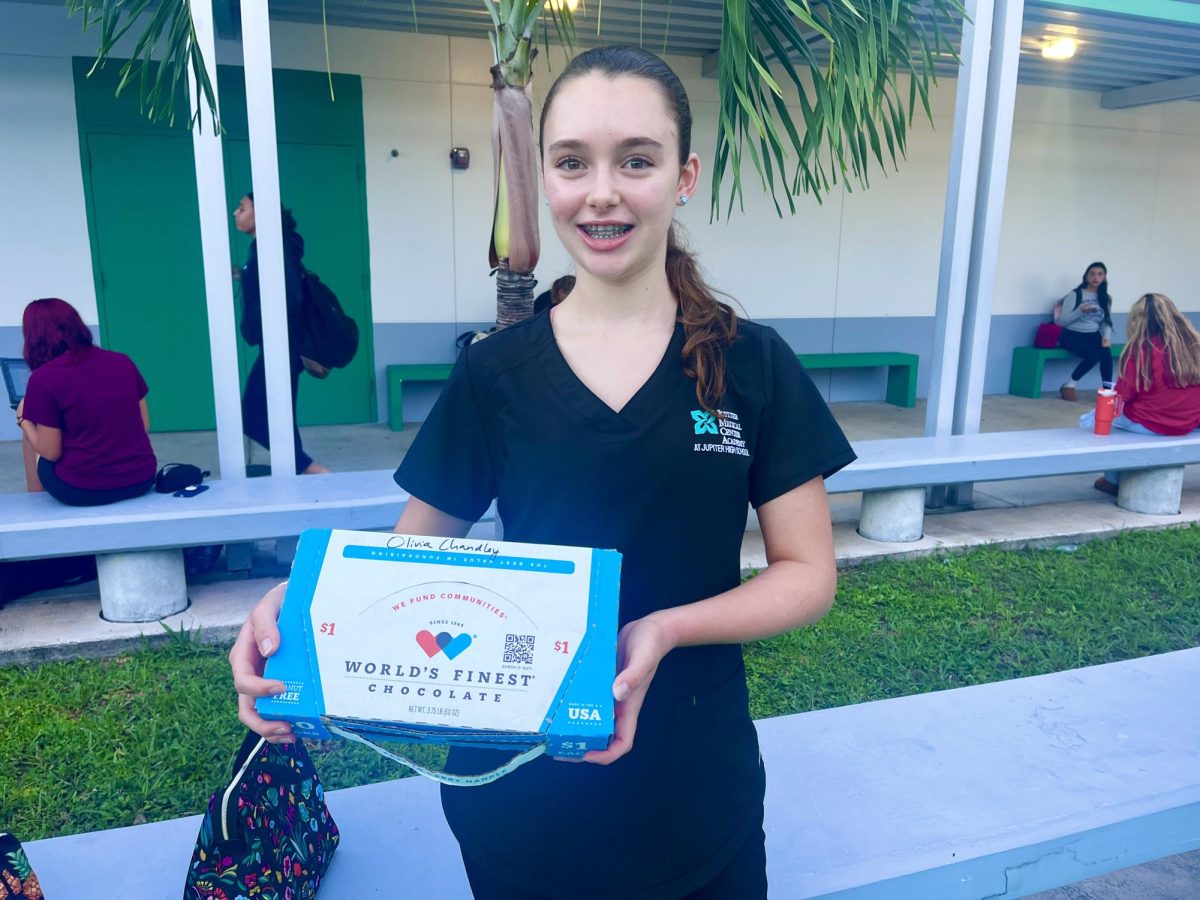
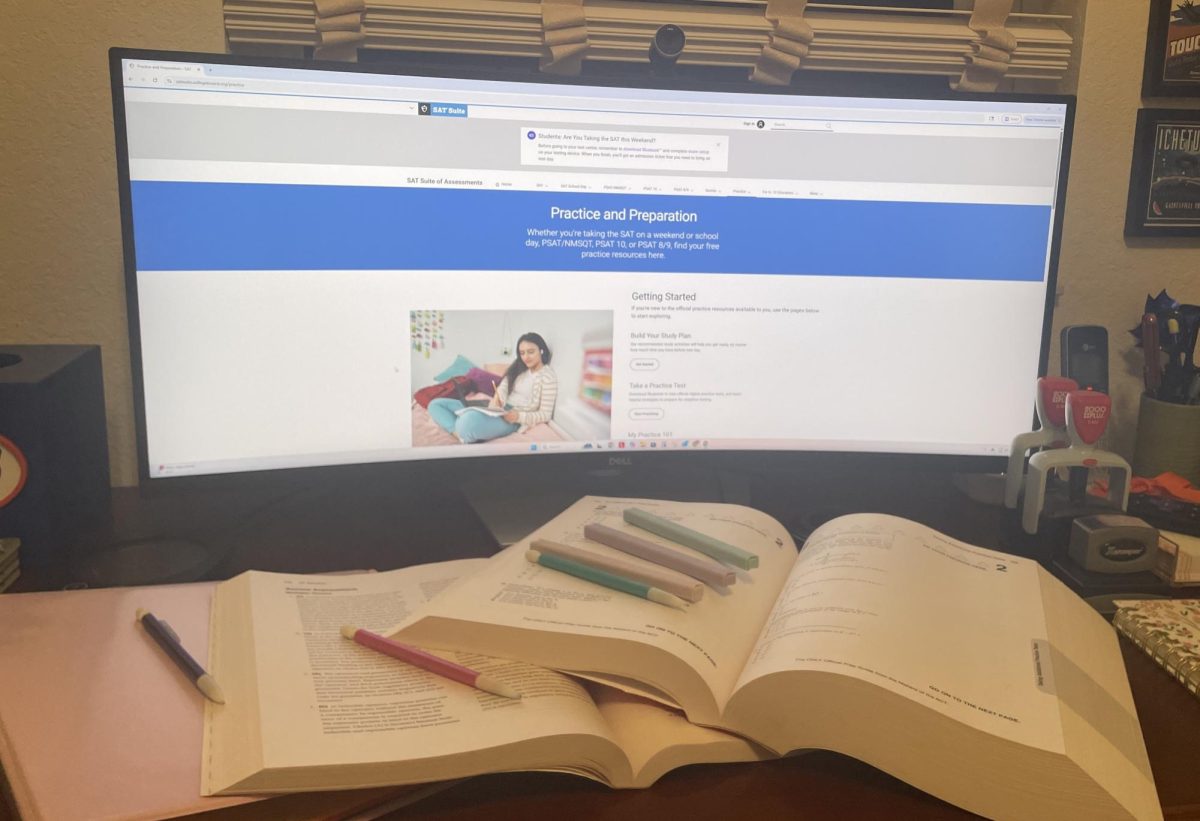
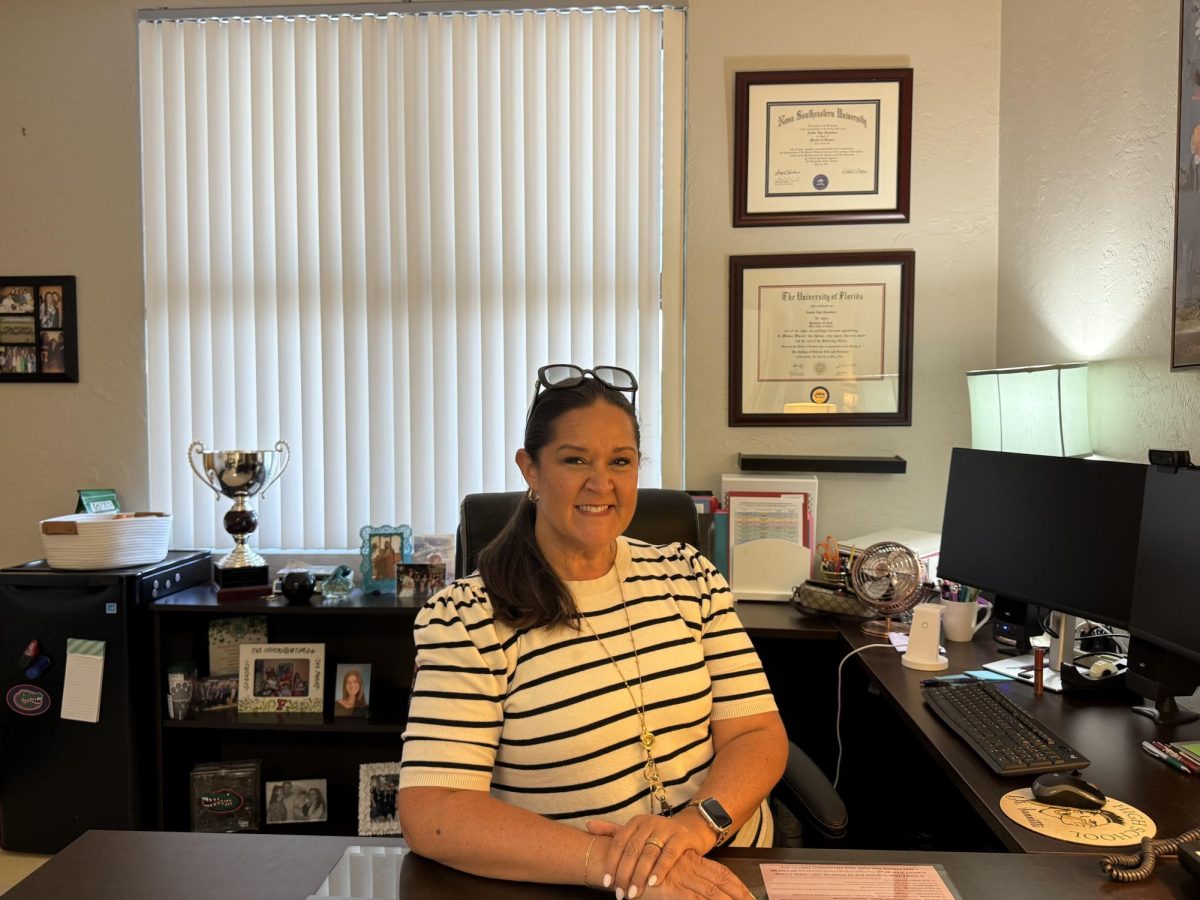
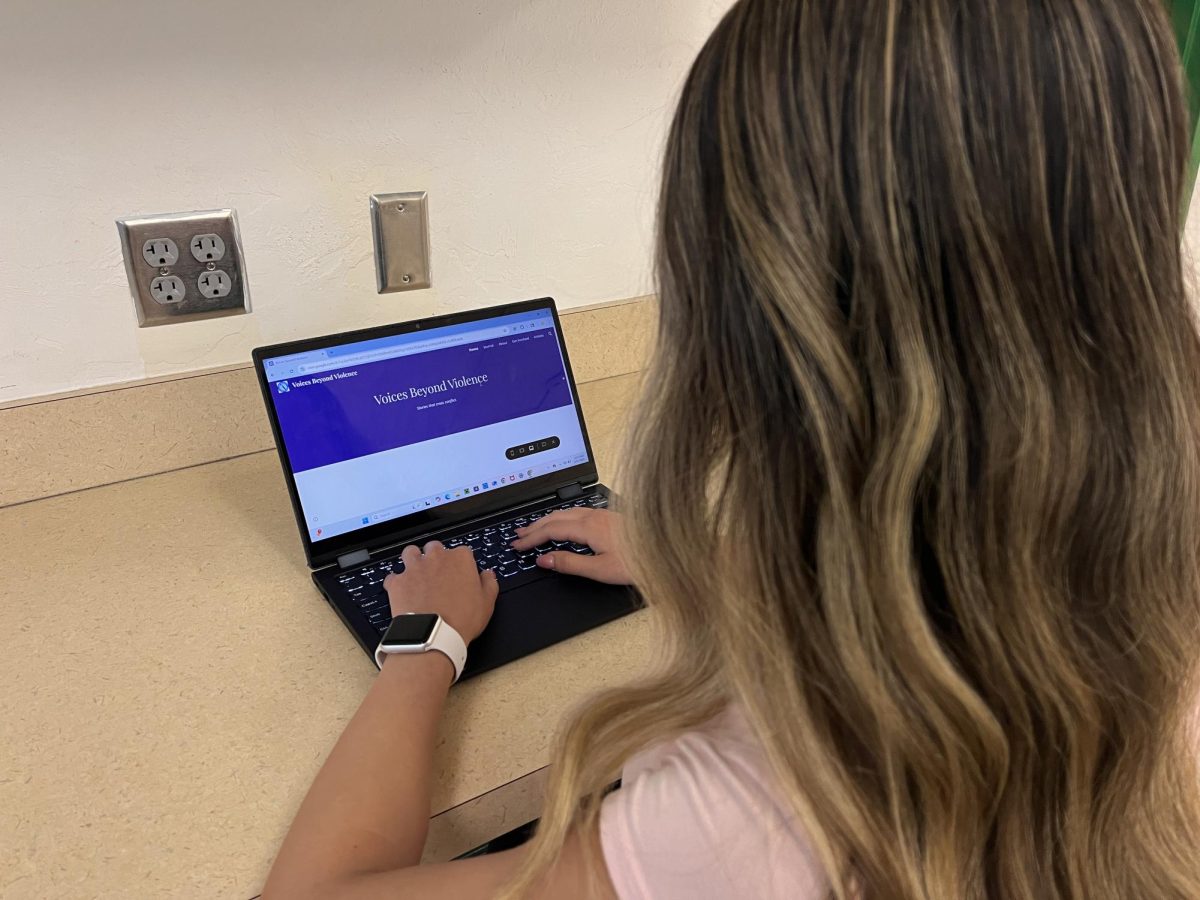
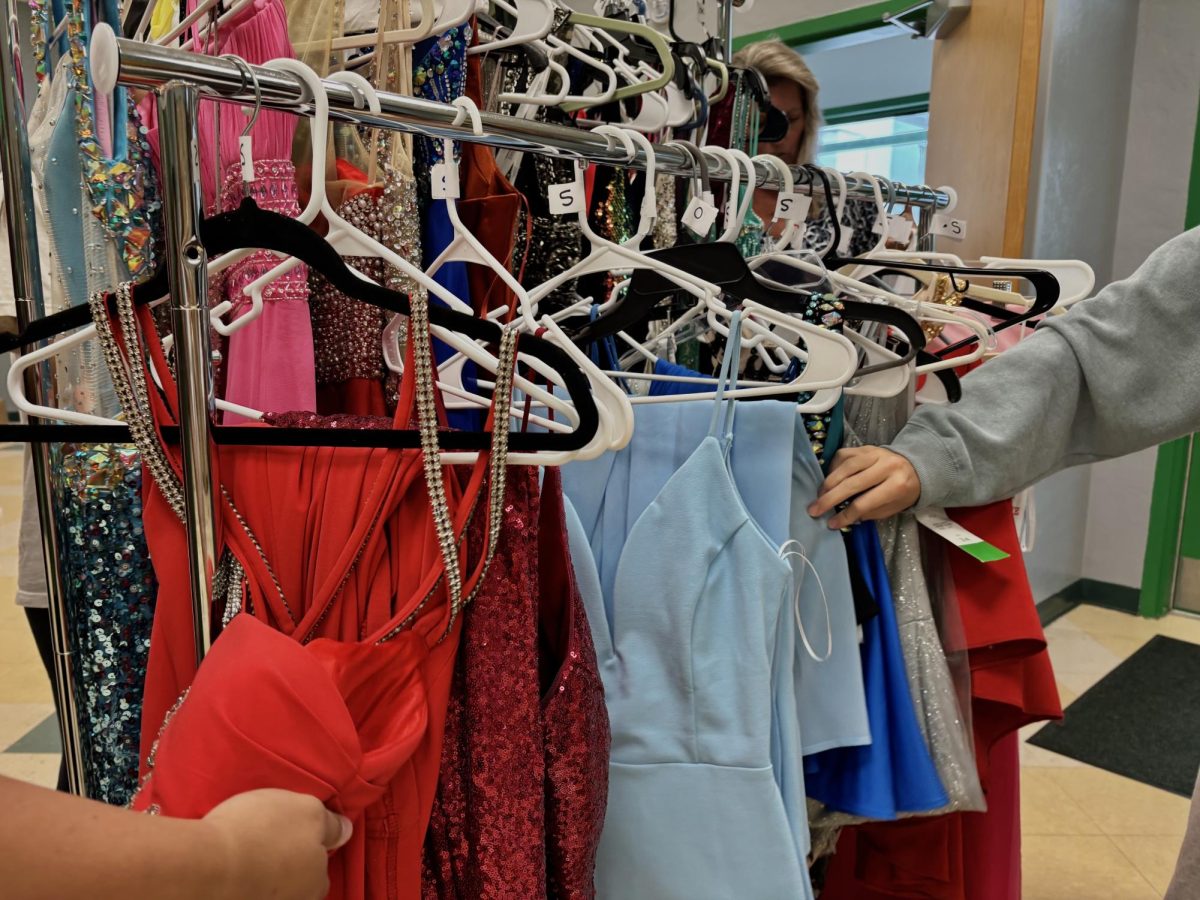
Anonymous • Feb 29, 2024 at 11:11 am
this is so interesting! i love this and how jupiter is hosting international people! xx
anna • Jan 31, 2024 at 11:52 am
cool read, i really enjoyed hosting those students!